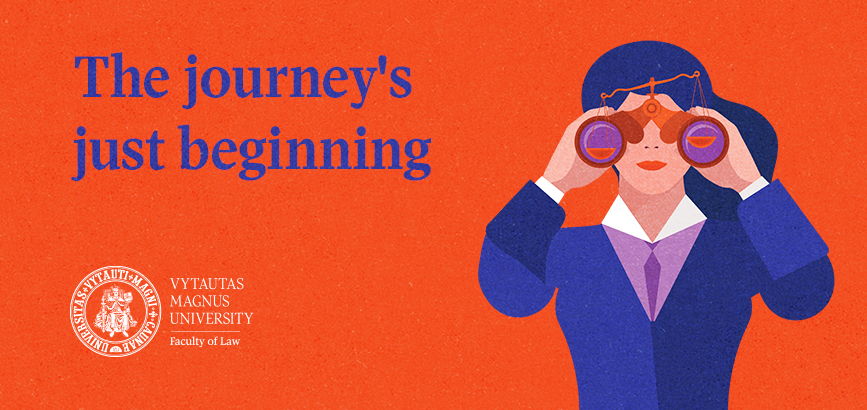Constitutionalism in Europe: Current Challenges and Prospects for the Future
On Friday 25 November, the VMU Faculty of Law, in collaboration with International Institute for Democracy and Electoral Assistance (International IDEA) and European Humanities University, is organising the international conference titled Constitutionalism in Europe: Current Challenges and Prospects for the Future.
Registration to the Conference (mandatory)
Webinar ID: 862 4242 3425 Passcode: 042864
The conference will take place at the VMU Small Hall (28 S. Daukanto g., Kaunas) and online via Zoom.
The event will be held in English and Lithuanian, with according interpretation.
Patron of the event – Law firm AMLEX
The conference is co-financed by the Lithuanian Research Council and the Ministry of Culture of the Republic of Lithuania
Background and objectives of the conference
The conference will mark three significant occasions: the 30th anniversary of the Constitution of the Republic of Lithuania, adopted on the 25th of October 1992, the 100th anniversary of the 1922 Constitution of the State of Lithuania, as well as the 100th anniversary of the University of Lithuania – the predecessor of Vytautas Magnus University.
The conference seeks to bring together leading researchers and practitioners to discuss the contemporary challenges to the European constitutional order, and the concepts and values of constitutionalism and assess national and supranational responses to these challenges. Learn more about conference speakers here.
Over the past years, countries in Europe and worldwide have faced new and diverse political, social, economic, and legal challenges. The COVID-19 pandemic, terrorism, migration, populism, illiberal democracy, authoritarianism, hybrid war, and other challenges continue to affect constitutionalism and the commitments to democracy, human rights, and the rule of law. To cope with current and future challenges, a review of comparative experiences at national levels is critically important for the development of a thorough understanding of the threats faced by constitutionalism, avoid constitutional backsliding and, instead, help ensure the expansion of the ideas and practices which sustain constitutionalism.
The topic of the conference will be addressed in three sessions by prominent speakers who are professors of constitutionalism and constitutional law, former constitutional justices, and practitioners. The first session will be dedicated to challenges that countries across Europe and worldwide have faced recently, and the relevant legal and institutional responses to them. The second session will focus on the opportunities and strategies for countering the erosion of democratic constitutionalism and fostering its future resilience in countries where democracies have undergone democratic backsliding. The third session will cover insights into the future of constitutionalism in Europe and worldwide. As a result, the conference will provide a unique opportunity to assess the state of constitutionalism in Europe and share a common vision for its future.
Session 1: Contemporary challenges to constitutionalism
This session will give an opportunity for the speakers to address specific challenges (including abusive constitutionalism, populism, authoritarianism, war, terrorism, migration, COVID-19 pandemic) which have recently been faced by the countries in Europe and worldwide. The speakers will reflect on how to safeguard constitutionalism in the context of contemporary challenges. How have the current challenges shaped the concept of constitutionalism in Europe and worldwide? How have these challenges affected methods of interpretation, legal doctrines and legal arguments about constitutional order in Europe and globally? Which impact have these challenges had on constitutional control? Have these challenges presented any opportunities for constitutionalism?
Furthermore, this session will provide an opportunity to discuss constitutionalism by looking through the lens of different countries in Europe and worldwide. The path of constitutionalism is unique in each country. It is shaped by the specific historical, political, social, and cultural situation. The experiences of different countries can help to identify the rise and fall of constitutionalism, learn from success stories and challenges, and use the valuable experiences in the future. Why do some countries succeed in the creation of constitutionalism while others do not? How can a country create successful constitutionalism and retain it? Which threats can arise along the path of constitutionalism and how to deal with them? The speakers of this session will have an opportunity to address these and other related questions.
This session aims to discuss constitutionalism not only from a European perspective but also from a broader context, i. e. to look at the experiences of Taiwan and the United States of America, to compare their and European stories of constitutionalism.
Session 2: Current challenges in rebuilding constitutionalism
In the course of history, we have seen opportunities to restore lost constitutional order. Some countries are making good use of these opportunities while other states are failing in rebuilding constitutionalism. Restoration of constitutionalism poses challenging questions. How does one restore a democratic constitutional order that has been lost? What challenges are faced in restoring constitutionalism? What are the main threats during the rebuilding of constitutionalism? How can the rebuilding of constitutionalism be encouraged? What role do other countries or international actors play in rebuilding constitutionalism? Which means do they have in use? This session of the conference aims to address these and other related questions. Special attention during this session will be paid to the experiences of Armenia, Belarus, Georgia, Moldova, and Ukraine.
Session 3: Future of constitutionalism
The final session seeks to summarize the main ideas discussed in the previous sessions and develop a comprehensive vision for the future of constitutionalism in Europe and worldwide. The session aims to elaborate on the following questions. Where does the current path of constitutionalism lead: to constitutional backsliding or constitutional progress? What are the main future challenges for constitutionalism? How will these challenges affect constitutionalism and our commitments to democracy, human rights, and the rule of law? How should we react to these future challenges? Which (legal) means do we have or should develop to respond to these challenges? What are the strengths and weaknesses of current constitutionalism? Should constitutionalism be reshaped? Should we talk about new features of constitutionalism? Are we entering a new historical epoch (phase) of constitutionalism?













